With half a million views.
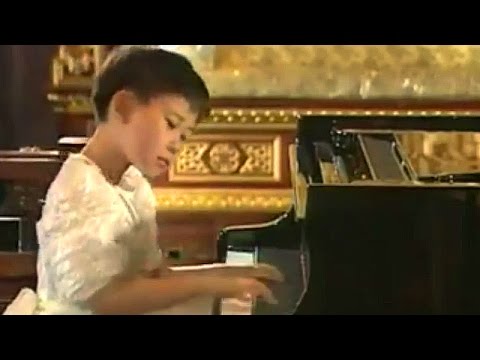
With half a million views.

A recording from before the composer’s wildnerness years.
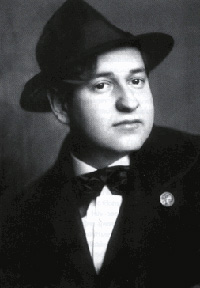
Professor Peter Tregear, former head of Australia’s National University’s school of music, wonders whether the country needs a permanent opera company in its landmark opera house – indeed, whether any country, after Covid-19, will need a national opera.
His core argument:
Opera is especially exposed because it is so closely connected to the places where pandemics have the greatest impact — large cities. Opera is an urban art form par excellence. By the mid-19th century, it had become a principal medium through which burgeoning urban populations might hear and see stylised representations of their lives (albeit filtered through the lens of historical or mythic subjects). It’s not for nothing, for instance, that so many operatic heroines die of “consumption”, a preeminently urban disease.
Now, however, under the shadow of COVID-19, the future of the city itself is under question; the rise of video platforms like Zoom seems to make the necessity of “being there” no longer a necessity. This idea has been refuted by others who highlight the human yearning for togetherness. The general manager of New York’s Metropolitan Opera, Peter Gelb, similarly has said that while it may be soothing to watch opera streamed at home, it is ultimately a “one dimensional experience”.
Nevertheless, with theatres unable to return to full capacity for the indefinite future, and public funding bodies becoming strapped for cash, a return to anything like our pre-COVID operatic culture is unlikely. The current crisis does, however, offer a chance to think afresh about opera’s place (literally as well as figuratively) in our society.
More here.
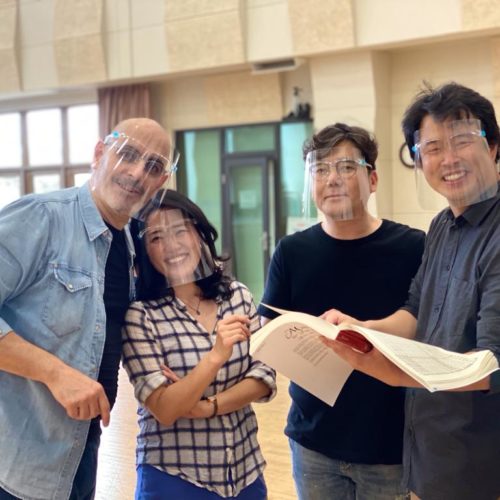
Your thoughts?
The embittered orchestra has accepted a one-year subsistence deal.
Press release:
Indianapolis…In a joint commitment to the long-term financial stability of the organization, the Indianapolis Symphony Orchestra and the ISO’s musicians have announced a 1-year agreement, providing both health benefits at no cost to the musicians and a financial stipend as part of a pathway to return world-class music to Central Indiana.
“Together, we are committed to bringing symphonic music back to downtown,” said James Johnson, CEO of the ISO. “We are deeply appreciative of the understanding and commitment of our talented musicians and pledge to work collaboratively to engage our patrons and greater community in new and meaningful ways.
“With today’s news, we can state unequivocally that the ISO is here to serve, and to stay,” Johnson added.
“As we work to re-emerge from this challenging period, the musicians wish to express our sincere appreciation to the ISO’s loyal patrons and donors for their past and ongoing support of our orchestra,” said Brian Smith, Orchestra Committee Chair. “We look forward to once again bringing great music to our beloved city as soon as possible.”
Terms of the agreement, which continues through August 29, 2021, include health coverage for musicians paid for by the ISO; a weekly payment of $500 to musicians beginning in January; and a commitment by the musicians to provide six weeks of performances and community engagement activities to connect the ISO with audiences. Musicians and staff will work together to come up with innovative, reimagined programming to continue to bring music to Central Indiana during the upcoming year. More details will be forthcoming.
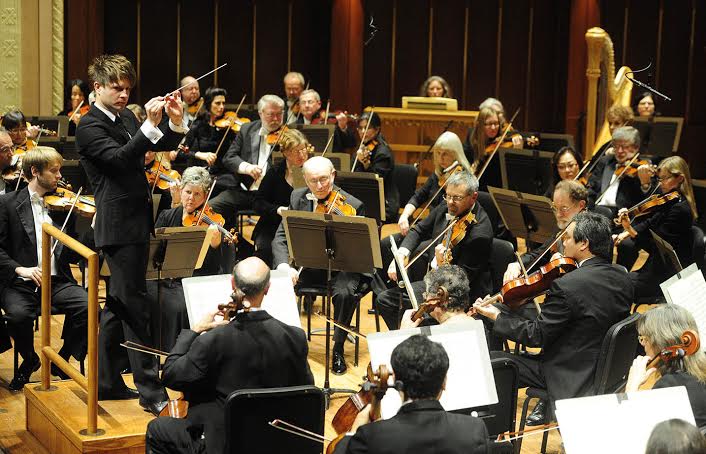
The Hollywood composer’s DG album with the Vienna Philharmonic is #1 this week in the German classical charts.
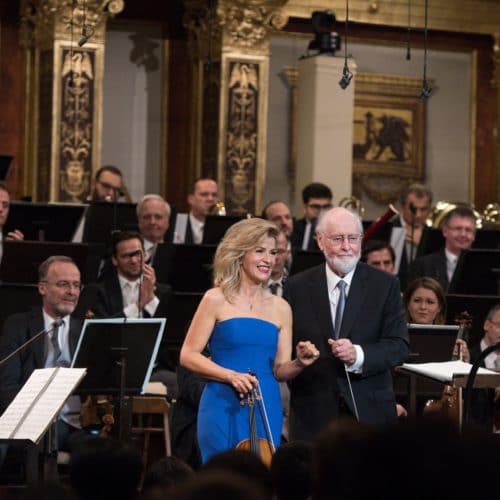
Beethoven, this was supposed to be your year….
The orchestra has rolled out its streamed season from now to the end of the year – no audience and only 25 players on stage.
The concerts will feature ensembles of up to 25 Orchestra musicians performing programs created for at-home viewing instead of an in-person audience. Each performance will offer approximately 60 minutes of music and be programmed with appropriate health and safety measures in place for the musicians.
President and CEO Michelle Miller Burns says: ‘Our goal, as we move concerts indoors for the fall, is to enable audiences to easily access the Orchestra on the platform of their choice—online, on TV or on the radio. In the next phase, we will roll out best practices for inviting limited audiences back into Orchestra Hall.’
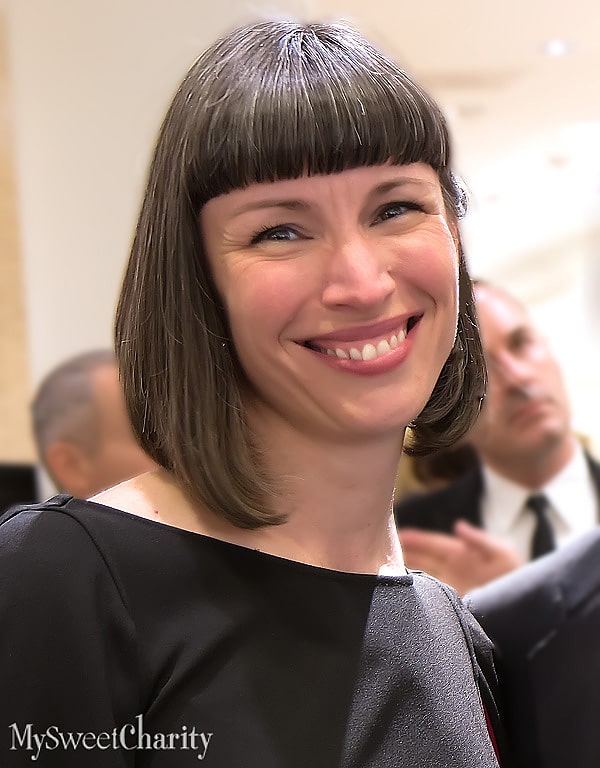
Surely she could manage more than 25 players?
The distinguished music critic and artistic director of the Bologna Festival Mario Messinis has died in Venice, aged 88.
Among his many contributions to music in Italy were a spell as head of La Fenice and another as director of the Rai Orchestra of Turin.
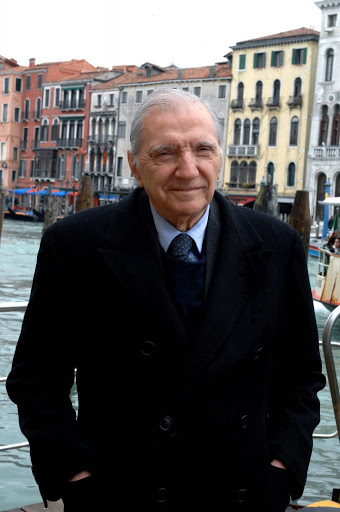
We promised to bring you every concert from the CBSO’s centenary year. He’s Christopher Morley’s review of centenntial night, conducted by the last music director but four:
On September 5 1920 the City of Birmingham Orchestra (as it was then) gave its inaugural concert in the Theatre Royal in Birmingham’s New Street. Exactly a century later it presented a celebratory event — thanks to lockdown, in a car warehouse in Longbridge, the heart of the city’s motorland.
The sheer achievement in mounting this celebration is mind-blowing. After split rehearsals, half the complement at a time, the orchestra eventually came together in carefully socially distanced spacing (and with sanitising buffers between the brass and the woodwind in front of them) for this joyous performance under the conductor who brought them to the world-class status they continue to maintain, Sir Simon Rattle.
Where was their current musical director? Mirga Grazinyte-Tyla, home in Salzburg (lucky girl) on maternity leave, paid several filmed tributes to her orchestra as well as determined hopes for the future, and there were other contributions from her predecessors, Sakari Oramo and Andris Nelsons.
Other luminaries popped up too: Simon Halsey, Stephen Hough, Roxanna Panufnik, CBSO alumnus Alpesh Chauhan (now doing great things as a conductor in his own right), as well as many members from all parts of the CBSO family, players, chorus, and supporters. The orchestra’s Patron, Prince Edward, Earl of Wessex, was an eloquent, generous presence as well. Elgar’s Enigma Variations purred along as a background to these contributions. Adrian Lester was the urbane presenter.
Sound from this venue was boxy and confined, even more so when filtered through a computer, but camera-work was revealing, with lovely close-ups of the players, and sweeping visual perspectives of the ensemble. And it was good to see Rattle in full-frontal expressiveness. There were also scenes of Birmingham and Elgarshire which were occasionally distracting, but which added to the context of the CBSO’s history.
The musical content reflected aspects of the orchestra’s history: Schumann’s Genoveva Overture, with some stirring horn-playing: Elgar’s Serenade for Strings, perhaps lacking a little in open-air abandonment; Saint-Saens’ Cello Concerto no.1, Sheku Kanneh-Mason the shapely, committed soloist: Hannah Kendall’s coruscating The Spark Catchers; AR Rahman’s glorious Slumdog Millionaire Suite, Roopa Panesar the mesmerising sitar soloist, and Stravinsky’s Firebird Suite, Elspeth Dutch the evocative horn soloist as the finale approached.
The last offering brought memories of when the CBSO and Rattle opened Symphony Hall with this very music. What a contrast now in venues! And in access, as well: I was reviewing elsewhere when this performance was originally given, so have had to see it on YouTube, interrupted by advertisements — including one for a famous brand of contraceptive.
Christopher Morley
See for yourselves:
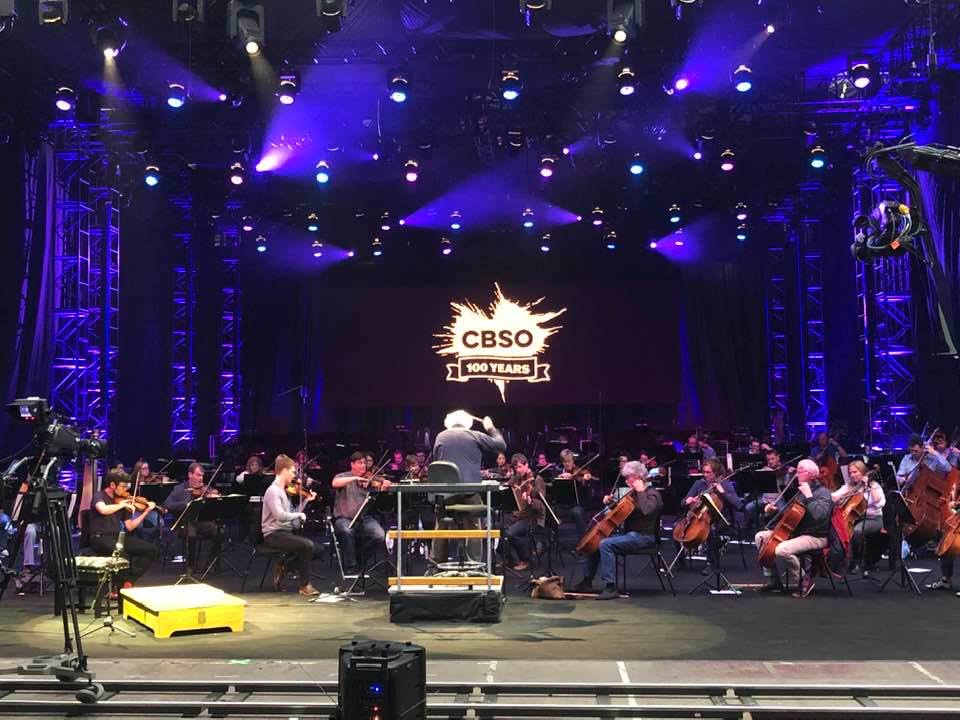
Two weeks before the new season Fort Worth Symphony Orchestra was told by Bass Hall that it had no intention of opening again this year.
‘We were extremely surprised to receive this disappointing news just two weeks before the opening of our Symphonic Series, especially after working with Bass Hall management all summer on detailed plans for a safe reopening,’ said Keith Cerny, FWSO’s President and CEO. ‘Luckily, Will Rogers Auditorium was able to accommodate the addition of our symphonic performances this fall with only minimal schedule changes.’
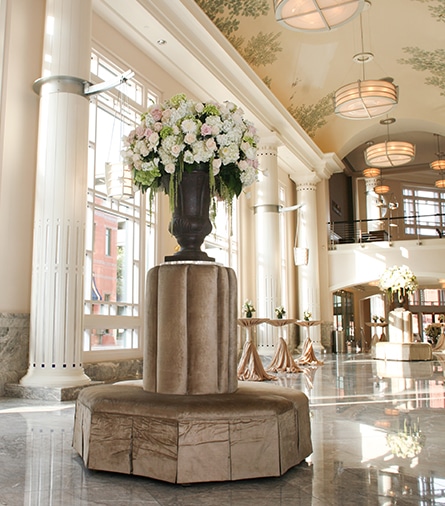
Connie Weldon, who has died in Miami, was the first woman to play tuba in world-class orchestras.
In 1954, she played under Leonard Bernstein’s baton at Tanglewood Music Festival and never looked back. Next stop was Arthur Fiedler with the Boston Pops. After a stint in the North Carolina Symphony she won a Fulbright Fellowship to study with Adrian Boorsma, principal tuba of the Concertgebouw. While in Amsterdam, she was named principal tuba of Netherlands Ballet Orkest and acting principal of the Concertgebouw.
She later joined the Kansas City Philharmonic, followed by the Miami Philharmonic Orchestra under Alain Lombard, teaching tuba at the University of Miami and forming her own campus ensemble.

The hall issued an emergency appeal this morning:
The Hall requires urgent public support to generate more than £20m to weather the COVID-19 storm and fulfil purpose of promoting arts and sciences for future generations
Despite Government references to the Royal Albert Hall as a “crown jewel” that must be saved, it cannot apply for any emergency grants within the £1.57bn arts and heritage sector rescue package
The usually self-sufficient charity has already forgone £18m in income in six months since COVID-19 forced its closure
To coincide with the Royal Albert Hall giving evidence to the DCMS Select Committee on the viability of performance venues to open adhering to social distancing rules, the Hall is launching a plea for public donations to help ensure its survival.
When the COVID-19 pandemic forced the Hall to close its doors on 17 March 2020, the Hall lost 96% of its income overnight. In the six months since then, it has forgone £18m in income, had to refund over £6.5m of ticket sales, exhausted its reserves and cancelled all but the most critical building projects.
Despite recent fanfare regarding the Government’s £1.57bn rescue package for the arts sector, the Hall is not eligible for an emergency grant, but has instead been advised to apply for a loan, which, if successful, it will receive in December, nine months after its ability to generate income was abruptly cut off.
Craig Hassall, CEO of the Royal Albert Hall commented: “Six months on from enforced closure, and circa £18m down in lost income, we are not eligible for any of the Government’s emergency grants. This leaves us in an extremely perilous position, with no way of replacing our lost income, apart from a government loan which may or may not materialise.
“We raised concerns months ago about the potential for independent, unfunded organisations such as the Royal Albert Hall to miss out on government support, and especially having been held up by Government as a ‘crown jewel’ that must be saved. With millions of pounds of essential building work called to a halt owing to COVID we had hoped to be eligible for a capital grant but have been informed that, as we are not a portfolio of nationally spread sites, we are not eligible for this scheme.
“We are fortunate to have supportive members and private donors who have given generously, but unfortunately, the ‘Rescue Package’ fanfare has given many potential donors the false sense that we are being sufficiently supported elsewhere. The Royal Albert Hall now faces a bleak future unless it can secure not only a repayable Government loan, but also urgent donations to plug our current £20m shortfall.”
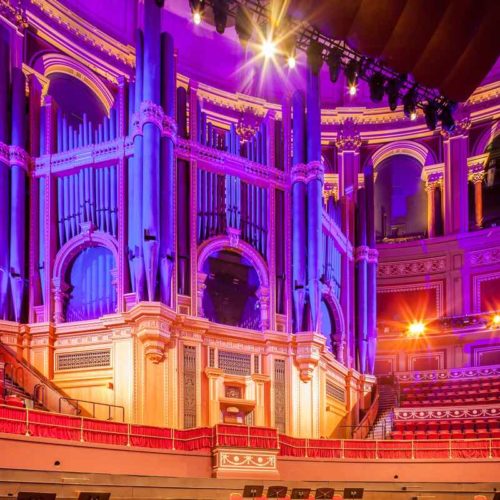
The city’s second arts centre will readmit audiences from October 4. (The Southbank Centre remains shut to the public).
Only a handful of people will be admitted to the performances. Tickets are £20 for those present and £12.50 for watching the stream.
Here are the highlights:
– Celebrated bass-baritone Sir Bryn Terfel and Britten Sinfonia in an intimate evening of music close to his heart (4 Oct 2020)
Scottish multi-instrumentalist and contemporary composer Erland Cooper and ensemble will perform special arrangements interspersed with spoken word and visuals (10 Oct 2020)
– Revered chamber pop group The Divine Comedy present a selection of songs from across their career, performed by a six-piece band (14 Oct 2020)
– Singer-songwriter Emmy the Great presents material from her upcoming album April / 月音 (17 Oct 2020)
The seven brothers and sisters of the Kanneh-Mason family perform their first public concert in London (22 Oct 2020)
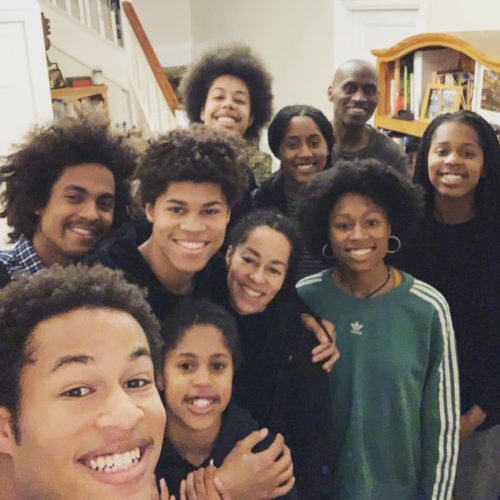
– Celebrated Northumbrian songsmith Richard Dawson presents a special solo set (25 Oct 2020)
Award-winning tenor saxophonist and composer Nubya Garcia performing material from her new album SOURCE (29 Oct 2020)
– Sir Antonio Pappano will be joined by friends and long-time collaborators tenor Ian Bostridge, soprano Dame Sarah Conolly, and the Carducci Quartet (1 Nov 2020)
– BBC Symphony Orchestra, Chief Conductor Sakari Oramo and soprano Anu Komsi give the world premiere of the chamber orchestra version of Magnus Lindberg’s Accused (6 Nov 2020)
– Cassie Kinoshi and SEED Ensemble will mark the 80th birthday of spiritual jazz icon Pharoah Sanders. Part of EFG London Jazz Festival 2020 (14 Nov 2020)
– Saxophonist, clarinettist, composer and band leader, Shabaka Hutchings performs alongside Britten Sinfonia a programme featuring Copland’s Clarinet Concerto. Part of EFG London Jazz Festival 2020 (18 Nov 2020)
– Physicist Professor Brian Cox joins the BBC Symphony Orchestra and Principal Guest Conductor Dalia Stasevska to explore the questions raised by music and the Cosmos (13 Dec 2020)
UPDATE: The London Symphony have followed up with 11 concerts at the Barbican in November-December:
Sir Simon Rattle conducts all the concerts which feature the five Beethoven piano concertos with guest soloist Krystian Zimerman. Each programme is performed twice in one day at 3.30pm and 6.30pm with socially distanced audiences and recorded for future broadcast. For the final LSO concert of 2020 on December 17 Krystian Zimerman will play all five Beethoven piano concertos in one extended programme with intervals.
This series marks the return to and the conclusion of the LSO’s celebration of Beethoven 250 at the Barbican which began with performances of Beethoven Symphony No 7 and his oratorio Christ on the Mount of Olives which was performed on Sunday 19 January.
The Beethoven concertos are paired with works by Stravinsky for every concert. Audiences will be able to hear Stravinsky’s Apollon musagète, composed for the Ballet Russes, Four Norwegian Moods, his Octet for Wind Instruments, Suite Nos 1 & 2 for small orchestra, Concerto in D for Strings, Symphonies of Wind Instruments, and his ballet music composed for New York City Ballet Orpheus and Agon.
For the final LSO concert of 2020 on December 17 Krystian Zimerman will play all five Beethoven piano concertos in one extended programme with intervals.